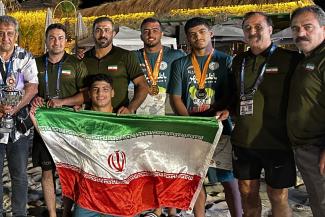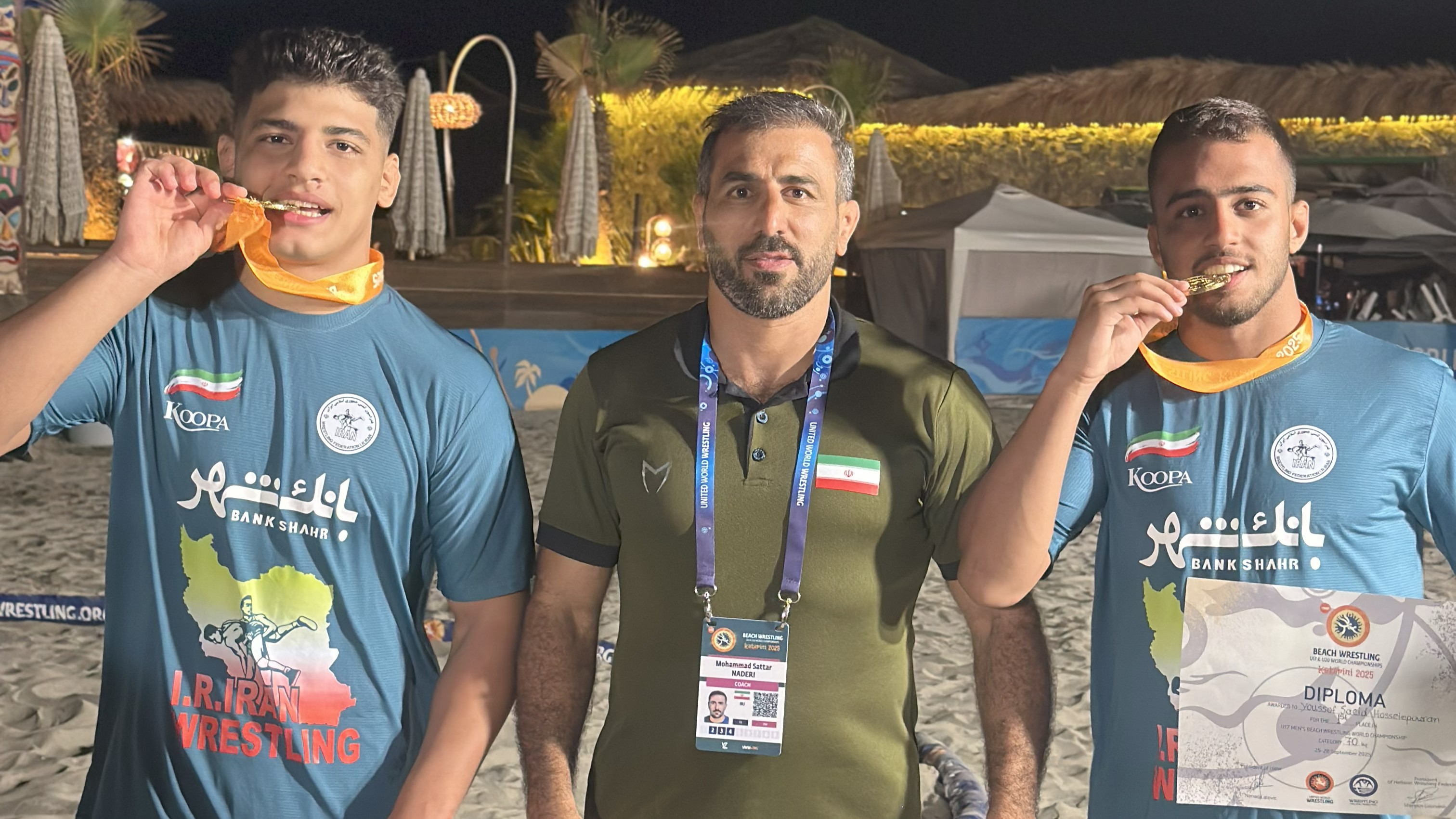Burroughs and Chamizo, Snyder and Sadulaev Headline Biggest Rivalries of the Year
Wednesday, December 19, 2018 - 13:05 By Eric Olanowski
CORSIER-SUR-VEVEY, Switzerland (December 19) -- United World Wrestling has named four of the Biggest Rivalries of the Year. There were two in freestyle, and one in Greco-Roman and women's wrestling.
The freestyle season saw more than one top-level rivalry, so a pair were selected for this category. The first freestyle rivalry selected was the 74kg showdown between Jordan BURROUGHS (USA) and Frank CHAMIZO (ITA), and the second was Abdulrashid SADULAEV (RUS) and Kyle SNYDER (USA).
The 74kg rivalry was kickstarted on social media when Burroughs, the five-time world and Olympic champion, posted an Instagram photo that was captioned, “If you want to be the king, you have to beat the king.” The message was of course directed at two-time world champion, Chamzio, who was coming up to 74kg after winning the 2017 world title at 70kg.
After trading social media blows, May’s Beat the Streets in New York City was the stage selected to host the first match between the pair of superstars. Chamizo commanded the early 4-0 lead in that Beat the Streets match but was outscored 6-1 in the final four minutes of the bout, losing the match, 6-5. Chamizo scored his revenge in the second match, outlasting the London Olympic champion in front of a sold out Bağcılar Olympic Sports Hall at the Yasar Dogu in Istanbul, Turkey, evening the series at one match apiece.
The rubber match took place in the bronze-medal bout of the World Championships and not in the gold-medal bout as everyone expected heading into Budapest. In that match, Burroughs edged Chamizo, 4-4 on criteria and took the 2-1 series lead.
The second biggest freestyle rivalry of the year was between Russia’s four-time world and Olympic champion, Abdulrashid Sadulaev and Kyle Snyder, the three-time world and Olympic champion. Snyder scored the 6-5 come-from-behind win when the pair battled for the 97kg individual world title in Pairs in 2017. More importantly, Snyder's win gave the Americans their first team title in 22 years.
Sadualev got his revenge in the finals of the 2018 World Championships by pinning the returning world champion and put the icing on the cake for the Russian Federation to win the freestyle team title.
Perhaps no weight category was more competitive in 2018 than women’s wrestling’s 76kg. Lead by reigning world champion, Yasmin ADAR (TUR), four-time world champion, Adeline GRAY (USA), and Rio Olympic champion, Erica WIEBE (CAN). It was the American Adeline Gray who prevailed and won her fourth world title.
In Greco-Roman, Kyrgyzstan’s Akzhol MAKHMUDOV (KGZ) was looking for redemption coming into the Junior World Championships the American Kamal Ameer BEY (USA) was victorious in the 2017 junior world finals. Makhmudov dominated the bronze-medal bout at the Junior World Championships and picked up the 8-1 win.
We had to wait an entire year to see some of the rivalries, but that may not be the case heading into 2019. Snyder wasted no time in letting the wrestling world know when a potential #SnyderLaev3 could happen, announcing that he'll head to Krasnoyarsk, Russia, in January to compete at the 2019 Ivan Yarygin - a tournament in which Sadulaev is expected to be entered.
The next award to be released will be the Comeback Athletes of the Year which will come out on Saturday.


 Iran's two gold medalists in Greece, Mahdi FOTOUHI (IRI), left, at 90kg and Youssof HOSSEIN (IRI), right, at 70kg.
Iran's two gold medalists in Greece, Mahdi FOTOUHI (IRI), left, at 90kg and Youssof HOSSEIN (IRI), right, at 70kg. Azerbaijan's first-ever gold medalist Ulviyya MUSAYEVA (AZE) with other team members.
Azerbaijan's first-ever gold medalist Ulviyya MUSAYEVA (AZE) with other team members.
Share your thoughts.
Comments